
![[sort:pic]](/template/default/images/banner/3-3.jpg)

Lean management provides customers with high-quality services and a visible panoramic view of the prosperous era.
Share
Introduction:
It is reported that the Port of Los Angeles reached its highest container throughput in 117 years in June -- 890,000 TEUs.
Importers, desperate to get goods into port before the Trump administration's tariffs on 14 countries take effect on August 1st, are paying astronomical freight rates that have surged 25-fold ($2,000 → $50,000 per container), triggering a life-or-death race against time...
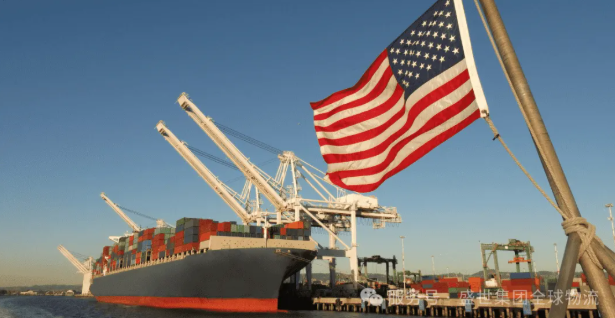
In the first half of 2025, the Port of Los Angeles' total throughput approached 5 million TEUs, a 5% increase year-on-year. However, the true frenzy concentrated in the second half of June, with import laden containers reaching 470,450 TEUs, a 9.8% increase compared to the same period last year.
Behind this data lies panic ordering by countless businesses.
Yedi Houseware, a Los Angeles-based kitchenware importer, candidly stated: "I stocked up on about five months' worth of inventory (earlier this year)." The company primarily imports items like air fryers and waffle makers from China.
The President of the Global Forwarding Division at logistics giant C.H. Robinson observed that many importers are only choosing to ship essential goods, like back-to-school season items, while holding off on others, adopting a wait-and-see strategy.
Some clients are accelerating shipments from Southeast Asia to catch the tariff window. The port has urgently added capacity with 7 extra vessels to handle the anticipated second stockpiling peak in July.
Businesses are racing against the clock to get goods into the U.S. before the August 1st deadline for "reciprocal tariffs."
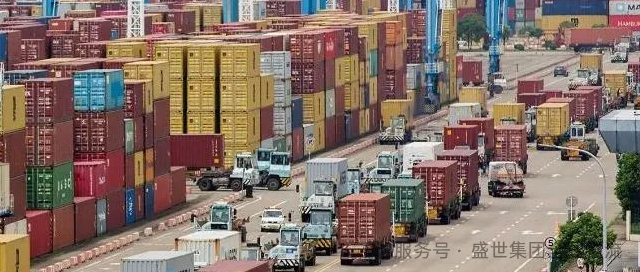
Trump's unpredictability is the direct cause of the severe volatility in the supply chain.
In April, the Trump administration imposed baseline tariffs on nearly all countries globally, causing a sharp drop in imports at the Port of Los Angeles.
Imports slowed significantly in May and continued to decline in the first half of June. As some tariffs were suspended, goods began moving again, causing a rebound surge in the second half of June.
On the night of July 7th, Trump posted 14 consecutive letters to heads of state on his "Truth Social" platform, announcing 25%-40% tariffs on products from multiple countries effective August 1st. The tariff rates were inversely proportional to the countries' economic strength.
James Hookham, Director of the Global Shippers' Forum, warned: "Shippers should wait for the formal documents to come out and not rely on social media for tariff details."
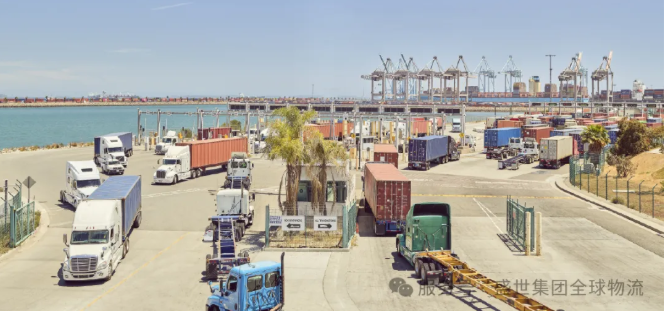
While the Port of Los Angeles works around the clock processing record containers, other U.S. ports are experiencing varying degrees of congestion and delays.
▌ Port of New York/New Jersey
The Port of New York/New Jersey is facing rail delays of up to a week. Congestion isn't limited to marine terminals; a chassis shortage is exacerbating traffic jams. Normal transit times for goods moving out of the New York metro area are expected to increase by three to five days.
▌ Port of Houston
The Port of Houston began imposing hefty import dwell fees on refrigerated containers exceeding the standard free time starting July 1st. With free time limited to just two calendar days, cargo arriving on Thursday or Friday faces a particular risk of weekend fee accumulation.
▌ Cargo Inspection Rates
Cargo inspection rates have spiked sharply at major ports across the U.S.
Rates have risen dramatically in Jacksonville, Baltimore, and Detroit; significant increases are also seen in Houston, Dallas, New York, Norfolk, Savannah, and Los Angeles. Issues mainly focus on declared value and importer authenticity.
▌ Container Pickup and Return
Abnormalities plague container pickup and return in multiple locations: Omaha faces chassis shortages making pickup difficult; Seattle terminals are severely congested with appointment shortages; Dallas requires shippers to bring their own chassis due to shortages; Chicago has an extreme shortage of 45-foot chassis.
For import businesses, soaring costs are squeezing their margins.
Container shipping rates have skyrocketed to staggering levels: "Previously, a container cost only $1,500 to $2,000; now it's as high as $40,000 to $50,000."
Fashion accessory brand Bogg was forced to reduce its bag offerings from 4 styles to 2 and roll back some order quantities. Its founder, Kim Vaccarella, admitted that although some production has shifted to Vietnam, all molds and raw materials still need to be imported from China.
Amazon and Walmart warehouses are facing severe congestion.
Overcrowding has led to multiple warehouses suspending appointment scheduling, including TCY1, IAH3, etc. Appointment times are severely delayed, with locations like AVP1, ORF2 averaging 3-week delays. Full container load (FCL) direct delivery wait times are abnormal, reaching up to 24 hours at some locations.
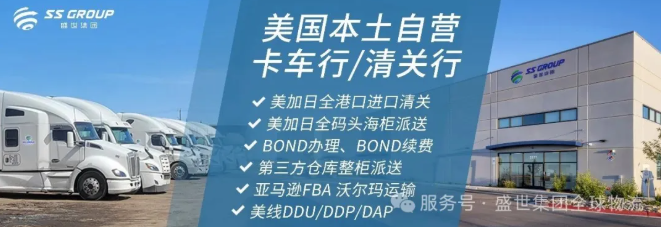
Although a second stockpiling peak may occur in July, port executives are extremely pessimistic about the outlook beyond August.
Seroka (Port of LA Executive Director) predicts: "If tariffs rise as scheduled after August, imports will decline again."
Retailers are unlikely to speculatively place large orders and risk having to offer deep discounts later in the year for the holiday season.
Consumers will soon feel the ripple effects. The founder of investment advisory firm Quo Vadis Capital stated: "Consumers could start feeling the impact of tariffs as early as this month. Price increases are expected within the next three to six weeks, primarily on items not purchased frequently."
The Port of Long Beach has launched a $365 million land reclamation expansion project. Upon completion in 2028, it will add 19 acres of new container yard space, increasing capacity by 50%. However, this is far from enough to address the immediate crisis. What U.S. ports need most right now is not more space, but a stable trade policy environment.
The sight of mountains of containers will soon disappear.
Under the hammer blows of trade policy, global supply chains are revealing unprecedented fragility. Right now, you need us to safeguard your journey.
▌ Shengshi Group · Global Logistics
U.S. Based Customs Broker / Trucking Company
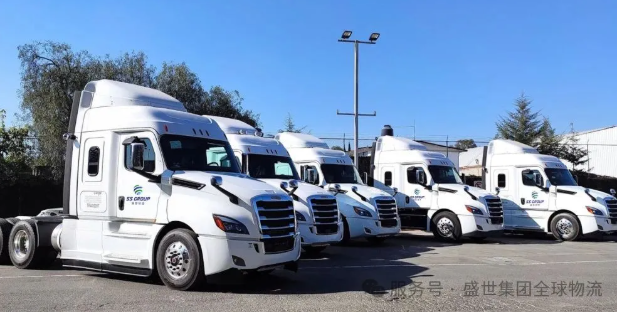
We specialize in U.S. final-mile customs clearance and transportation, Amazon FBA logistics, and one-stop third-party warehousing services. Headquartered in Los Angeles, as a U.S.-based customs brokerage, we possess over 50 years of customs experience and a team of licensed Chinese-American customs brokers. We have the latest news, firsthand information, and can help you avoid pitfalls to achieve comprehensive cross-border e-commerce business growth.
In this challenging tariff environment, choosing us means choosing professionalism, efficiency, and peace of mind. Shengshi Group will spare no effort, leveraging our expertise to safeguard your cargo, helping you navigate steadily forward in the complex and ever-changing international trade market. Let's overcome difficulties together and expand your broader commercial territory!